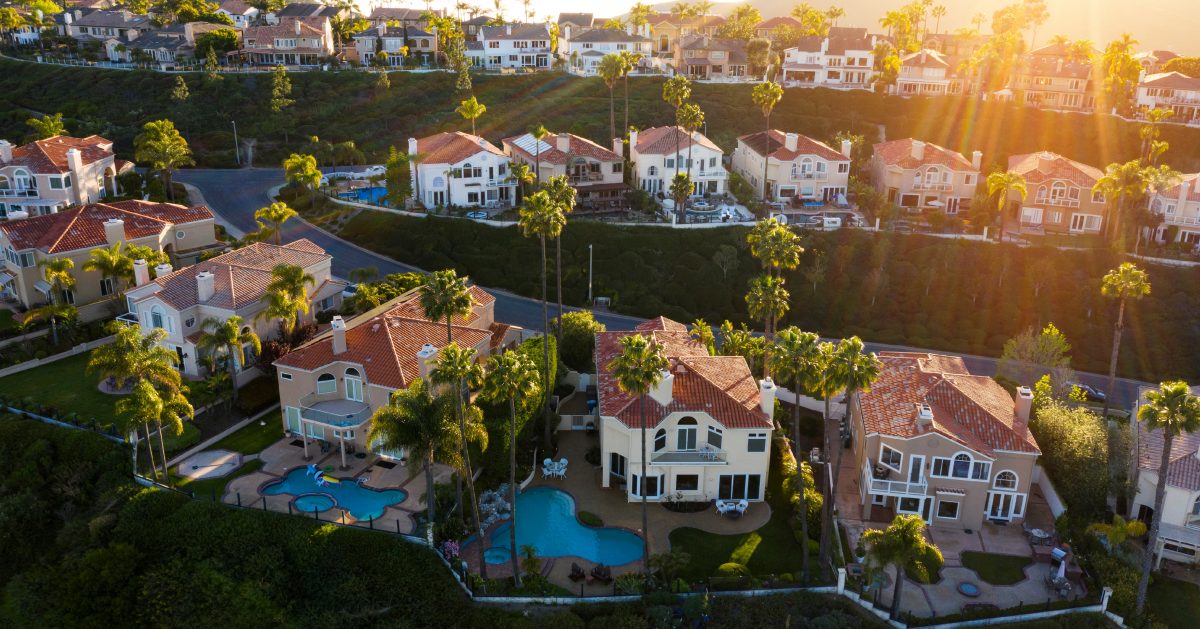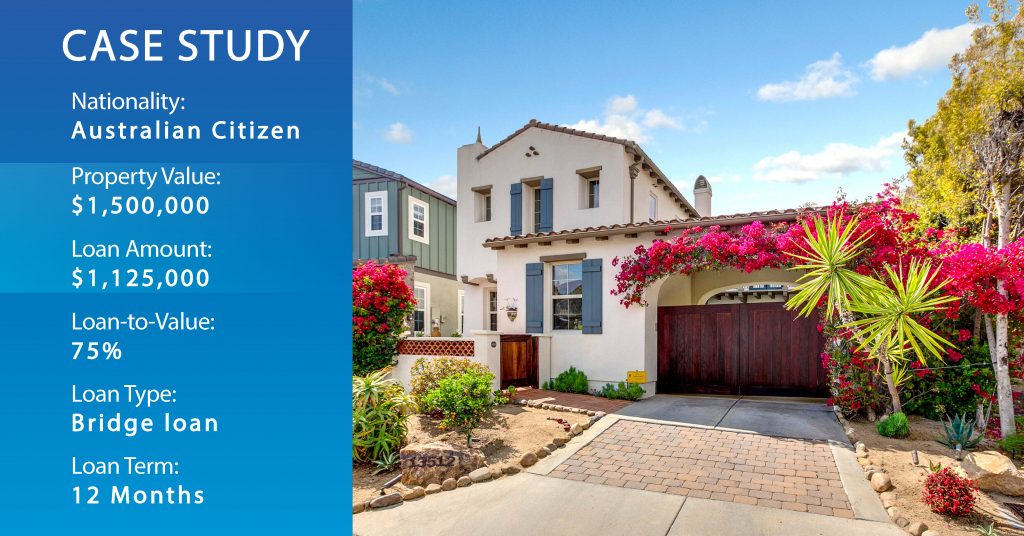Top 5 Foreign Buyers of U.S. Residential Real Estate*
- China 13% of total = $13.6B
- Mexico 11% of total = $4.2B
- Canada 10% of total = $6.6B
- India 7% of total = $3.4B
- Colombia 3% of total = $900M
Top 5 States for Foreign Buyers*
- Florida 23%
- California 12%
- Texas 12%
- North Carolina 4%
- Arizona 4%
US$53.3 billion*
The total value of foreign buyers of U.S. real estate
$639,900*
The average purchase price by a foreign buyer
*National Association of Realtors, year ending March 2023
Contents:
- Average purchase price of top 5 foreign buyers
- Top 5 states buyers from China, Mexico, Canada, India and Colombia are choosing, respectively
- Top 5 origin of foreign buyers in Florida, California, Texas, North Carolina and Arizona, respectively
- What surprised us from our research!
TOP 5 FOREIGN BUYER ANALYSIS
Asian buyers continue to lead the charge as the largest group of buyers, with a 38% market share. Going forward, we expect to see increased demand from SE Asia as growth in this region continues to exceed expectations.
LATAM was the runner-up with a 31% share of total foreign buyers, not far behind China. We are very excited about the growth outlook for LATAM as the reshoring of manufacturing to The Americas, and the growth outlook improves. One interesting point is that Colombia replaced the United Kingdom as the 5th largest international buyer, proving the growth of LATAM at the moment. We have recently set up an office in Panama and are looking to rapidly expand our footprint here.
European buyers accounted for 14% of foreign buyers, while Canadian buyers alone accounted for 10%.
Chinese buyers continue to have the highest average purchase price at $1.2 million, as buyers purchased in expensive states: 33% of Chinese buyers purchased a property in California, and 6% purchased in New York. This makes sense since California and New York have better-known schools, and a big driver in this decision is education. See our Deep Dive on The Best U.S. High Schools.
Mexican buyers typically purchased the least expensive properties, with Texas as the preferred destination. This can be explained by the geographic proximity.
Average purchase prices for Foreign Buyers
- China $1.2M
- Mexico $449K
- Canada $779K
- India $577
- Colombia $355K
Buyers from China – Top 5 Destinations
- California 33%
- Florida 16%
- Texas 8%
- Colorado 6%
- New York 6%
Buyers from Mexico – Top 5 Destinations
- Texas 48%
- California 18%
- Ohio 6%
- Arizona 4%
- Florida 4%
Buyers from Canada – Top 5 Destinations
- Florida 55%
- Arizona 14%
- California 4%
- Louisiana 4%
- Montana 4%
Buyers from India – Top 5 Destinations
- California 20%
- Pennsylvania 14%
- Texas 11%
- Alaska 9%
- Illinois 9%
Buyers from Colombia – Top 3 Destinations
- Florida 80%
- California 13%
- Illinois 7%
TOP 5 DESTINATION ANALYSIS FOR FOREIGN BUYERS
Florida is the top destination for foreign buyers with 23% market share, mostly coming from LATAM 46%, Canada 24%, Europe 16% and Asia 14%. Florida has the best combination of vacation home, investment property and also luxury homes.
California has the 2nd largest market share of foreign buyers at 12%, mostly coming from Asia. Direct flights, temperate weather, and well-known universities make it an obvious destination for Asian buyers. See our California Report.
Texas was the 3rd top foreign buyer destination, with a 12% market share. Texas is one of our top 3 choices for pure real estate investments. The zero-state tax rate will always generate an incoming population from gentrification and also companies setting up their headquarters. For example, Dallas is the headquarters for the Fortune 500 companies in the world!
North Carolina was the biggest surprise to me as the 4th-highest destination for foreign buyers. One of the prettiest and underappreciated states, North Carolina, deserves more research on what is driving the interest of foreign buyers. We will keep you posted.
Arizona has always been a popular destination for foreign buyers and is the 5th-most popular destination, with 4% of all foreign buyers.
Share of Top 5 State to Total Foreign Home Buyer Purchases
- Florida 23%
- California 12%
- Texas 12%
- North Carolina 4%
- Arizona 4%
Florida – Origin of Foreign Buyers
- LATAM/Caribbean 46%
- Canada 24%
- Europe 16%
- Asia/Oceania 14%
California – Origin of Foreign Buyers
- Asia/Oceania 61%
- LATAM/Caribbean 22%
- Europe 7%
- Africa 7%
- Canada 3%
Texas – Origin of Foreign Buyers
- LATAM/Caribbean 55%
- Asia/Oceania 25%
- Europe 11%
- Africa 5%
- Canada 4%
North Carolina – Origin of Foreign Buyers
- Asia/Oceania 50%
- Europe 22%
- LATAM/Caribbean 22%
- Canada 6%
Arizona – Origin of Foreign Buyers
- Canada 37%
- Africa 26%
- Asia/Oceania 16%
- Europe 11%
- LATAM/Caribbean 11%
What surprised us from our research?
- The average price for a Chinese buyer is $1.2M
- North Carolina, the 4th most popular state for foreign buyers
- Asians are the largest foreign buyers of North Carolina real estate
- Indian buyers prefer Pennsylvania as their 2nd most favorite state
- Canadians are the largest foreign buyers in Arizona
- Africa, the 2nd largest foreign buyer of Arizona real estate
Our analysis reveals fascinating trends in the U.S. residential real estate market driven by foreign buyers. While China remains a major player, Asian buyers take the lead overall. Florida stands out as the top destination, but California, Texas, and even a surprising North Carolina, all attract significant foreign investment. The data highlights the diverse motivations behind these purchases, with factors like education, investment potential, and proximity influencing location choices.
Ready to explore your U.S. real estate opportunities? Contact us today at [email protected] or schedule a call with our loan officers and schedule a commitment-free meeting with one of our U.S. loan officers to explore your U.S. mortgage options further, you can do so using our 24/7 calendar link. Our team can help you navigate the intricacies of financing your U.S. investment property.










